Mahmoud Abdelkader is CEO and co-founder of Very Good Security (VGS), an Andreessen Horowitz-backed company that allows startups and enterprises to preserve the functionality of their sensitive data (i.e. passport numbers, SSN, etc.) without having to store that data on their own system. They do this by intercepting data in motion then replacing it with an aliased version, which companies can operate on just as they would the original data. Mahmoud started VGS to make best-in-class security and compliance attainable for businesses of all sizes. The Nasdaq Entrepreneurial Center took a moment to catch up with Abdelkader on his journey thus far.
What does “entrepreneurship” mean to you?
MA: Entrepreneurship is a way to change the world and solve the problems that matter most to you. Founders champion their vision and mission to address problems, gaps, and deficiencies while building companies with the hope of achieving an improved world. Entrepreneurship is the process we utilize to make these ideas a reality.
How did your company come to be?
MA: My partner, Marshall Jones, and I saw an industry gap in cost-effective data security for early-stage companies in regulated verticals, so we started engineering custom solutions for this. The real “aha moment” for me was when I started comparing how we protect money to how we secure data and asking myself what lessons we should be drawing from banking today. I realized that there wasn’t a way for companies to secure data and operate on it without incurring risk and liability.
For as long as I can remember, banks have fascinated me. In most societies, banks have become part of our everyday lives. Before checks and payment cards, people hid their coins and cowry shells under their mattresses or buried it in their backyards. When they exchanged their currency for goods or services, they had to physically retrieve and deliver those valuables making them vulnerable to theft and loss. Today, people use money—but they rarely ever come into contact with it because everything’s handled electronically and the actual storage, transfer, and accounting are managed by trusted banks. I am able to spend, save and collect money without the risk of actually carrying it on me.
So, Marshall and I set out to see if we could apply this same paradigm to data security. Just as we use the value of money without risk, liability, and the inconvenience of physically carrying it around, we wanted to build a system to enable companies to secure their data without having to hide it in their own proverbial backyard, and still safely use their data however they please. That’s when the idea for Very Good Security (VGS) was born.
What is the biggest experience or lesson gained on your journey so far?
MA: How prevalent the lack of respect for our data security and privacy is in modern software engineering. A lot of individuals, from developers to application builders, still do not think about security or privacy when building applications. Day after day, data breaches occur not just because of human error or bad programming, but because some people don’t see the importance of creating secure systems. They don’t understand the real risk this presents to their company or their customers. It’s a big deal and it impacts both individuals and organizations.
I’ve come to realize that the only way companies are going to create secure systems is if it is seamless for developers to embed security and privacy into their applications. Yes, we need to help everyone understand the importance of security, but we also need to be able to provide a solution to make it easier.
How is VGS changing the landscape?
MA: In the past, building a secure system and getting sign-off from risk-averse partners such as payment card processors, accounting auditors, and credit agencies could take six months to a year. Being able to accomplish this in a few weeks can literally mean the difference between success and failure to a startup. Few companies have the investment capital to build a product like this internally and even fewer have the luxury of time to wait around while it’s being built.
At VGS, we make it easy for companies to integrate security and privacy into their product, freeing them to focus on building their business. In addition — and this is important — we also make it easier for companies to meet compliance requirements, which enables them to safely utilize sensitive data to provide customer value while concentrating directly on building their core products. We believe that this will foster the creation of an entire generation of new and useful applications.
What do you wish you knew when you started?
MA: If I were to do it all over again today, I’d figure out a way to hire my team faster. It has taken Marshall and me three years to build a great team and we’re still hiring as we expand. I wish I had found this team sooner.
Through working and growing with them, I have developed a better understanding of the corporate culture and the values we are building together. I wish that had been in place earlier. It would have helped us find the right people faster.
What advice/credo do you live by as you grow the business?
MA: Lead by example. I have the utmost respect for the individuals I work with and I like to think of myself as a leader and not a boss. I absolutely love to roll up my sleeves and help out wherever I’m needed — which I think is the best way to lead. It builds a culture of individuals who aren’t afraid to roll up their sleeves, help each other out and produce the best work possible.
In fact, my Slack profile says “janitor” and I’m proud of that. It’s a subtle reminder that we all need to roll up our sleeves and execute on VGS’ vision, which is to secure the world’s sensitive data. I want to build something sustainable and for this to happen, we all need to put in the work.
What advice do you have for fellow entrepreneurs about building and leading teams?
MA: You have to understand that you spend more time with your partner — in my case my co-founder, Marshall — than with your spouse or significant other.
Fortunately, Marshall and I worked together exceptionally well long before we started VGS. We’d already built a base of trust and respect for each other. We work together really well because we complement each other.
My advice is to not work with people who are just like you. If you do, there will be head bashing in the future. Think about how a partner will complement your skills and your personality. For example, I can be intense and a go-getter, which is why it’s perfect for me to have someone like Marshall who is more yin and a lot more laid back and patient.
I have found that, as an entrepreneur, you really need to trust your gut and understand why your gut is saying something. Give yourself some time to basically say, “I’m going to make this decision based on my gut call and because of these reasons” and then figure out why you made that decision so that you can refine your gut calls and develop your intuition.
It’s hard, but you have to check your ego at the door. You can’t be afraid to ask questions and ask for help. It’s important to show vulnerability because it’s what makes you human. It keeps you learning and growing.
Where do you find inspiration when faced with challenges?
MA: It’s important to not only look at the short-term but also really see the bigger picture. With a very short-term time horizon it’s easy for everything to seem terrible, but if you zoom out to a longer time horizon you’ll generally have more options and it’s usually not as bad as you think it is.
I like to think about how Apple was when they came down to single digit dollars per share value in 1998. At the time, I was one of the people who was like, “Apple is going to die.” Now, 21 years later, it inspires me that the Apple executives believed in their vision and turned the company into one of the most valuable in history.
What does “success” look like for you? What do you think will help you achieve it?
MA: I believe privacy is a basic human right, but I’m also a technologist. So while I, for one, don’t trust a lot of applications because of how they secure their user data, I acknowledge that many of these applications provide a massive amount of value. We deserve a digital world that does not compromise on privacy and security but remains every bit as productive as the one we have today. If I can make it easy to build applications that respect end user privacy and are at least as useful as applications today, I will have succeeded.
What is your proudest and darkest moment so far?
MA: We embarked on this journey when my co-founder’s wife was pregnant with their first child. He was as interested as I was to leave a potentially high paying job and start VGS. But having him join me was one of the most daunting experiences in my life. I realized I’m not just responsible for myself and he’s not just responsible for himself, but now the financial future of both of our families were on the line. We had to make sure we succeeded because of our loved ones. It was terrifying, but it really put it all into perspective and I’m happy we were able to do it together.
Once we finalized our first contract, we realized we had built a product that people would actually pay for and get immense value from. That was one of the most amazing highs for us.
What lesson did 2018 have for you? What do you look forward to in 2019?
MA: In 2018, we executed on goals that were set earlier in the year, but I realized that we needed to be planning farther ahead. I didn’t feel like there was a cohesive push toward strategy, execution, or vision. In 2019, we have a more structured and logical evolution for a stable company. We look forward to even more of that in 2020.
Many entrepreneurs continue to perfect their daily routines to support their work and greater vision; would you mind sharing your morning routine or a regular ritual that grounds your work each day?
Every day, I get up around 5:30 a.m. and try to work out before jumping on calls from around 6:30 -7:00 a.m. I have had to alter my sleep schedule a bit so I am able to connect with my team that is 10 hours ahead. After my calls are finished, I check my email so that nothing falls through the cracks.
I create my to-do list a week out and then check the list every evening to make sure I’m on track. I’ve found it really helpful when planning individual days to take a weeklong view and really understand my top priorities. So, my morning routine actually starts the night before.
A top personal priority in 2019 is to make sure I eat lunch at a proper time each day.
What kind of an entrepreneur do you want to be known as, or what do you want your legacy to be?
MA: I want to fundamentally change the way people think about data security and data privacy. Our team works extremely hard every day to solve this unmet need. It’s difficult work and stressful at times, but at the end of the day, we’re creating something that previously didn’t exist, and there’s no greater feeling than that.
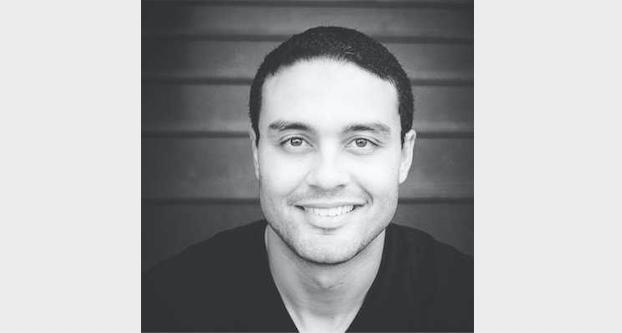
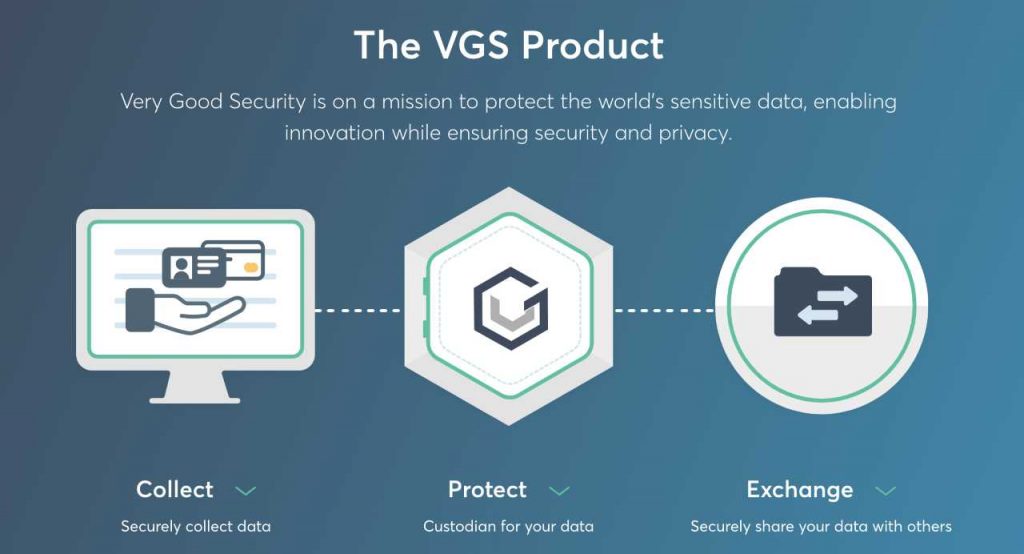
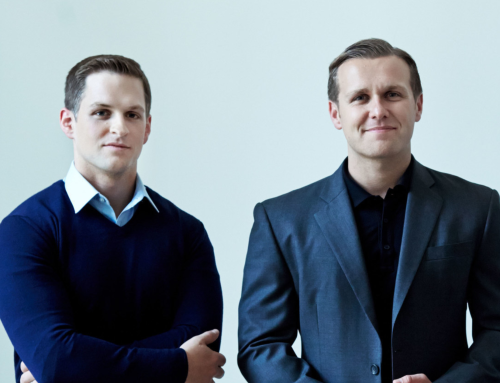
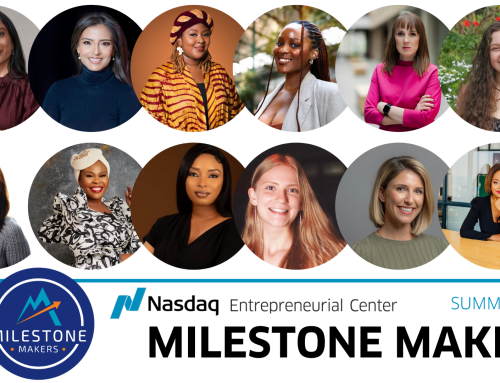
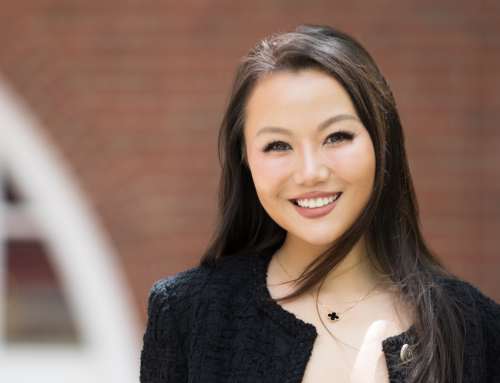
Invite a Friend
Close